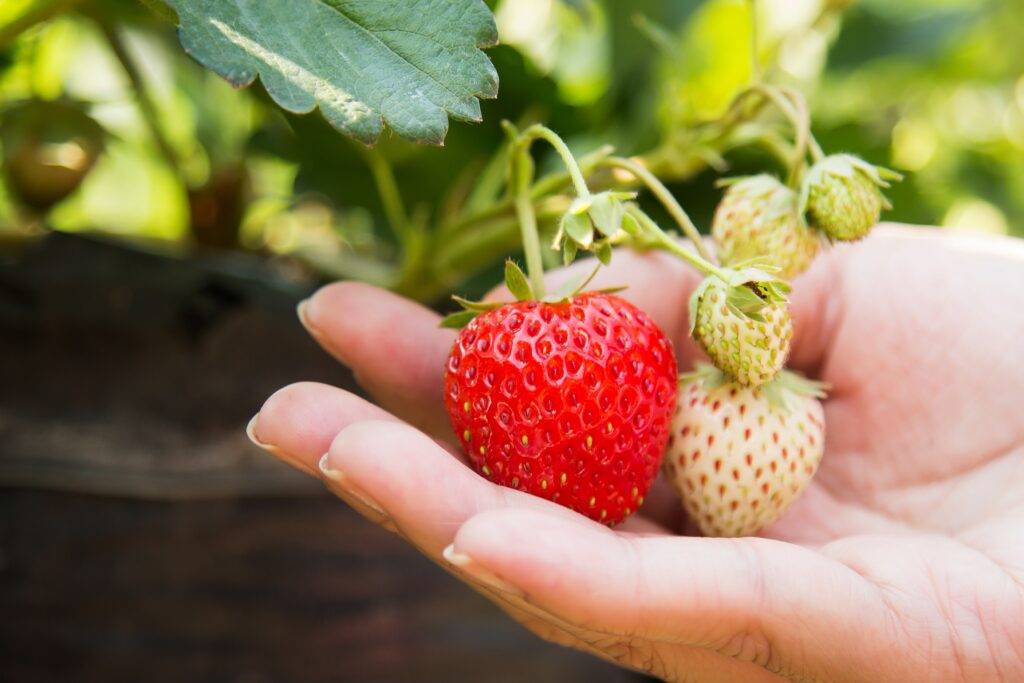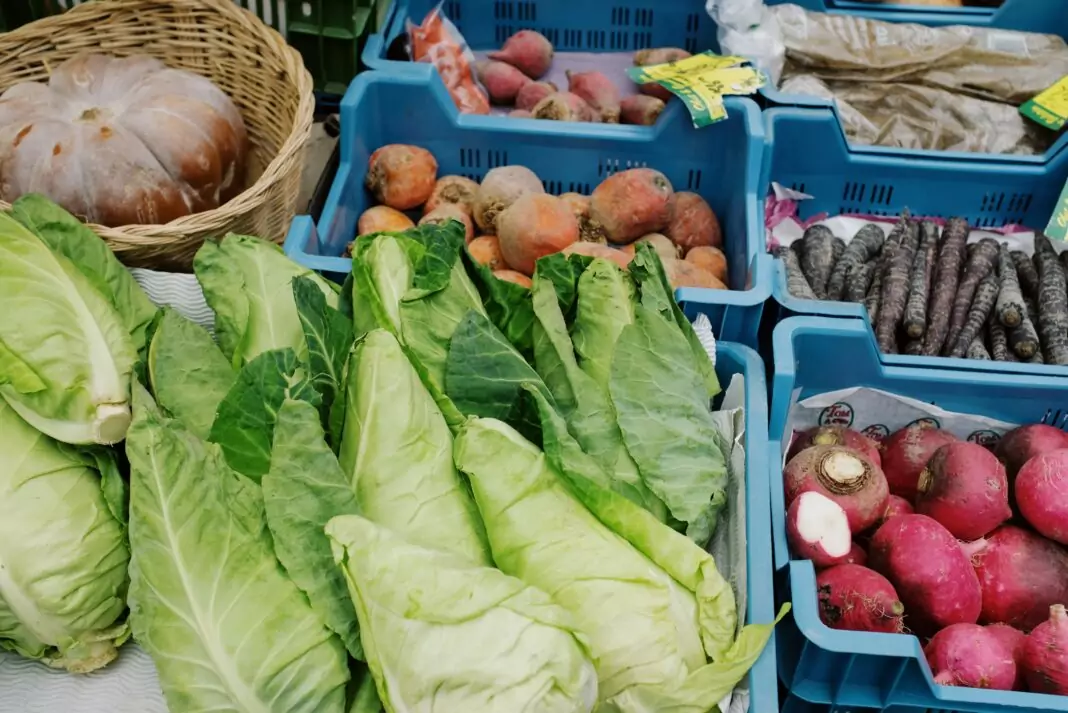Despite this year’s uncharacteristically warm winter, it’s hard to deny that the vibrant flavors of fresh summer produce are but distant memories. These days, when we go to the grocery store, not only are the prices mildly horrifying, but the vegetables are dull and covered with an ominous waxy finish. The tomatoes are mealy, the cucumbers are watery, and the greens are limp and already wilting.
Fear not: Better quality and more affordable options for farm-fresh produce are on their way. At this time of year, farmers are finalizing their crop planning, prepping their fields, starting transplants, cold-calling restaurants and prospective clients and getting ready to open their sign-ups for summer CSAs.
“CSA” stands for “community supported agriculture,” (or sometimes “community shared agriculture”) and is basically a weekly produce subscription box directly from your local farmer. You pay at the beginning of the season (some farmers offer payment plans and accept SNAP benefits) in exchange for a “share” of fresh, seasonal produce from the farm every week. Some farms allow add-ons of eggs, honey, or flowers; other farms offer meat CSAs. For many, a CSA can replace most grocery needs.
History of Community Supported Agriculture in America
The CSA is a relatively simple idea that works well for farmers and consumers. Because of its simplicity, it’s somewhat unclear how or where it originated. One common theory (now understood to be misleading) is that it emerged as part of a women-led movement against pesticides in 1970s Japan. Others maintain that the American CSA movement was influenced by the biodynamic agriculture tradition in Europe. Two of the farms originally influenced by this movement, Temple-Wilton Community Farm in New Hampshire and Indian Line Farm in Massachusetts, are still in operation.
But, in more recent years, farmers and agricultural historians have increasingly acknowledged that the model has its roots in Black history. Decades before Indian Line and Temple-Wilton farms, Black horticulturist and professor Brooker T. Whatley established his “10 Commandments” for sustainable farming, which included a “clientele membership club.” Exactly like a CSA, clients would pay up front, before the season, so that farmers could purchase seeds and equipment and pay their employees. This was particularly important given how regularly financial institutions, from local banks to the federal government, denied loans to Black farmers.
How It Works
Most farms serving Brooklyn haven’t opened their registration yet, but shares can sell out quickly, so here is a list of CSAs in Brooklyn to help guide you toward your perfect fit.
Most models give you very few options over what you get in your box, others allow you to pick what or how much of something you want from what’s available. Depending on the farm, you might also be able to add-on other products such as eggs, cheese, mushrooms, or butter in your share. Some farms have grain shares, meat and poultry shares, even flower shares!
Here is a list of CSAs serving Brooklyn
- Bay Ridge CSA, Bay Ridge
Bay Ridge CSA partners with the Lewis Waite Farmer Network, which comprises over 60 small growers and farmers from across New York State and Vermont. The Bay Ridge CSA also offers add-ons for an egg share and a fruit share.
Pick up: Fourth Avenue Presbyterian Church, 6753 4th Avenue Bay Ridge, every Saturday.
Cost: Full share: $740 for 20 weeks. Half share: $390 for 10 weeks.
- Brooklyn Beet CSA, Downtown Brooklyn
Brooklyn Beet CSA also partners with several local growers, including Angel Family Farms and Wilklow Orchards, and is fully volunteer run, meaning all participants must also sign up for two volunteer shifts per season.
Pick up: YWCA Brooklyn, 30 Third Ave. Tuesdays, between 6-8 pm.
Cost: Full share: $530 for 18 weeks. Half share: $273 for 9 weeks.
- Brooklyn Bridge CSA, Brooklyn Heights
Formed out of the Jewish environmental movement, Brooklyn Bridge CSA is now part of Just Food’s network, which coordinates CSAs across the Northeast. Brooklyn Bridge CSA offers granola share and fruit share add-ons.
Pick up: First Presbyterian Church, 124 Henry St, Wednesday evenings.
Cost: Price is on a sliding scale of income. Prices start at $860 for a full share of 24 weeks and $439 for a half share of 12 weeks.
- Brooklyn Grange, Brooklyn Navy Yard and Sunset Park
A rooftop garden established in 2010, this farm has the distinction of being the only one on this list actually located in Brooklyn. Make sure you pop by for a visit and check out their events and educational programming. The Brooklyn Grange CSA has a wide variety of add-ons and other shares available.
Pick up: Brooklyn Grange, Brooklyn Navy Yard or Brooklyn Grange, Sunset Park.
Cost: Based on an equitable model, prices range from $515-$1050 for a full share of 23 weeks.
- Clinton Hill CSA, Clinton Hill
This CSA, which requires a 4-hour volunteer commitment per full share, has several membership tiers and access options, based on your annual income. You can also add fruit, eggs, maple products, mushrooms, and grains to your share.
Pick up: 218 Gates Avenue, Thursday evenings.
Cost: Prices, determined by household income, range from $200-$735 for a full share of 22 weeks and $100-$368 for a half share.
- Cobble Hill CSA, Cobble Hill
Veggies for the Cobble Hill CSA are picked fresh on Monday mornings to be picked up by you Tuesday evenings. A rare CSA add-on, a flower share, is available as well. Like the Clinton Hill CSA, the Cobble Hill CSA requires 1-2 volunteer shifts.
Pick up: Christ Church, 326 Clinton Street, Tuesday evening.
Cost: $621 for 27 weeks, Cobble Hill CSA does not offer half shares.
- Dumbo and Vinegar Hill CSA, Dumbo
Dumbo and Vinegar Hill CSA partners with Sang Lee Farms, a NOFA-NY Certified Organic Vegetable Farm. CSA members are required to staff 2 volunteer shifts.
Pick up: Randolph Beer, 82 Prospect Street, on Wednesday evenings.
Cost: $940 for a full share of 24 weeks and $705 for a partial share (fewer vegetables per pickup, but still for 24 weeks).
- East Williamsburg CSA, East Williamsburg
This CSA offers 6-8 vegetables each week grown at Hearty Roots Farm in the Hudson Valley.
Pick up: Red Shed Community Garden, Wednesdays and Saturdays.
Cost: $740 for a full share of 20 weeks and $390 for a half share of 10 weeks.
- Norwich Meadows Farm, Multiple Locations
Norwich Meadows Farm is located in upstate New York. You can also find them at several of the city’s greenmarkets.
Pick up: Several places throughout Brooklyn and all five boroughs.
Cost: $678 at Norwich-specific pickups. Cost is variable for other locations offering Norwich Meadows Farm CSA products.
- Rocksteady Farm, Multiple Locations
Rocksteady Farms also offers an accessible pricing model. Read more about the details, here.
Pick up: Multiple locations which are subject to change.
Cost: Ranges from $660 to $1155 for a full share of 22 weeks and $480 to $840 for a half share.
- 607 CSA, Multiple Locations
607 CSA run by the Catskills Agrarian Alliance, an organization dedicated to food sovereignty and food justice.
Pick up: Several locations throughout Brooklyn.
Cost: $532 for a full share in the summer and $364 for a half share. 607 CSA offers multiple CSA options at many different price points.
If you live near Sunset Park or Prospect Park, also check out Prospect Heights CSA, Prospect Park CSA, Prospect Lefferts Garden CSA, and Sunset Park CSA. All are volunteer run, with equitable pricing models, and several pick up locations.

Though CSAs can be a fun challenge, they might not be for everyone. If you travel regularly during the summer, for example, you might struggle to coordinate your weekly pick-up. Some CSAs give you the option to either skip a week or donate your share if you plan to travel. Make sure you check in with the CSA about what your options are. You can also offer your share to a friend for a week that you’re not using it.
That said, CSAs are an excellent option for busy students or young professionals stuck in the city for the summer and trying to eat healthy. They also provide excellent motivation to hone your seasonal cooking skills. Get some inspiration from a new cookbook (I recommend “Simply in Season”), or ask your farmer how they prepare different veggies. If you are nervous about how to eat through a box of produce, you could try looking for a share that best suits your needs and maybe offers more options for customization. You could also split your share with neighbors or roommates.
If you still don’t feel like a CSA is right for you, don’t forget about greenmarkets. You can also check out GrowNYC’s “Fresh Food Boxes,” available on a week-to-week basis at several greenmarkets throughout the city.
You can find a list of greenmarkets in Brooklyn here. Greenmarkets allow you the most choice over your weekly grocery shop, while still maintaining a connection with your local farmer.
There are a lot of different reasons why one CSA might appeal versus another — but that is the good news, we have options! As the days get longer, it doesn’t hurt to plan ahead for the summer, and the juicy, sweet goodness of farm-fresh tomatoes, leafy greens, and berries.
This post was updated on March 27, 2024, to reflect changes in cost for 2024.


